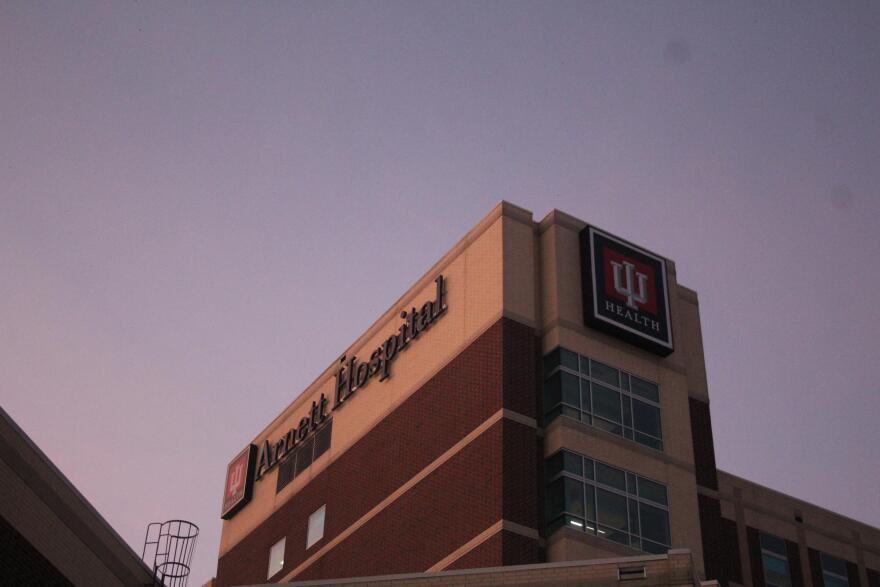Lafayette hospital officials stressed Friday that pressure on the capacity of their staff and facilities is only increasing -- and they’re examining crisis plans made at the start of the pandemic as they brace for more COVID-19 cases ahead.
“It feels, and is, different than it has been to date,” said IU Health Arnett Chief Medical Officer Dr. Jim Bien.
On a call with media, Bien said that hospitals continue to see high numbers of non-COVID patients seeking urgent or emergency care, combined with an increase in younger patients with COVID cases requiring hospitalization.
Bien and Dr. Daniel Wickert of Franciscan Health said both hospitals have continued to downsize the overall number of elective procedures performed, as patient volume increases and staffing challenges continue. And Bien underlined the ripple effect of an overflow in people requiring care.
“To call colleagues in Indianapolis and say, ‘Do you have hospital beds we can transfer patients to?’, and the answer is ‘No, maybe tomorrow?’,” Bien said. “To know that there were dozens of patients in my emergency department who couldn’t be placed in the best spot for their care needs? And then to have to call patients with life-changing diagnoses and tell them that their therapeutic surgery today was not going to be happening, because we didn’t have a space for their post-operative care?”
“I don’t know what more needs to happen for us to feel like we’re at extremis,” he said.
Wickert said it was a struggle to find the best solutions.
“All of the crazy plans that we made last March, in March of 2020, when we saw what was happening in New York City and we said, ‘Well, that’s going to be us, what are we going to do’ -- we’ve dusted those plans back off,” Wickert said. “They are not good plans. They are not happy plans. They are crisis plans.”
Those plans could include measures such as cancelling all elective procedures -- ranging from radiology x-rays to colonoscopies -- and redistributing staff from those departments to assist in other areas of care.
“You’ve got to at least look at it. You’ve got to think about it,” Wickert said. “You’ve got to at least say, ‘How can I make a difference?” But in order to make a difference, I have to take it from someplace else. That’s the challenge. We don’t have enough -- we’ve got to take it from somewhere else if we get to that point where it’s really, really bad.”
Both doctors emphasized that vaccinations remain the best way for ending the pandemic, used alongside continued measures such as masking and distancing.
“I think that our elected officials, who now have the responsibility to implement public health interventions, need to work collaboratively with the health department, and Dr. Adler, and move forward on expectations that he and the public health officials believe would be impactful -- and see if it helps,” Bien said. “So if that’s a mask mandate in our broader community, let’s see if that helps again, for the time being.”
Statewide, cases continue to increase. The Indiana Department of Health reported over 4,000 new confirmed COVID cases Friday, the highest count since January.


